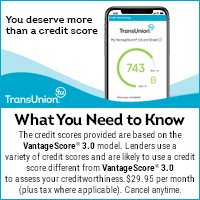
Finding the right financial advisor is as crucial as planning your financial future. Matching your unique financial goals with someone who can guide you efficiently is essential. Are you looking for a fee-only, commission-based, or fiduciary advisor? Understanding the differences among these options is vital for your financial peace of mind. This blog post will guide you through selecting a financial advisor that aligns with your needs and priorities. By the end, you’ll feel more confident making a decision that feels just right.
For a visual guide, check out this helpful video: This Is How You Pick the Right Financial Advisor.
Identify Your Needs and Goals
Selecting the right financial advisor starts with understanding your unique needs and goals. Knowing what you want to achieve financially, what risks you can bear, and how much you’re willing to spend on advice will streamline your decision-making process. Here’s what to consider:
Determine Your Financial Goals
Before you hire a financial advisor, you must establish why you need one in the first place. Are you planning for retirement, buying a home, or saving for your child’s education? Clearly defining these goals will aid in choosing an advisor who aligns with them. As noted in How to Choose a Financial Advisor, their expertise should complement your objectives and help you achieve milestones.
Assess Your Risk Tolerance
Knowing your risk tolerance—how much risk you will take with your investments. It’s about balancing comfort and recovery with potential disappointments in market ups and downs. An advisor must understand your risk boundary so they can tailor your investment strategy accordingly. Here’s an insightful read on how risk tolerance affects investment decisions from Investopedia.
Set Your Budget for Financial Advice
Understanding how much you are prepared to spend on financial advice is critical. Financial advisors have varying fee structures—some might charge a flat fee, while others take a percentage of assets managed. Sometimes, the return on good advice outweighs the cost, considering higher net returns during volatile market conditions mentioned by CNN.
Define Your Desired Relationship with an Advisor
Consider how often you want to communicate with your advisor. Do you need quarterly updates or prefer day-to-day involvement? Your comfort level with your advisor’s proactive communication shapes your experience. As described in the advice overview at Vanguard, a satisfying rapport can be as advantageous as their financial expertise.
Thoughtfully assessing these aspects creates a solid foundation for a productive relationship with your financial advisor. Each component helps ensure you’re prepared when it’s time to make critical financial decisions.
Types of Financial Advisors
Choosing the right financial advisor for you means understanding the various types available. Each comes with distinct methods to help you manage your finances effectively. Here’s a look at some of the most common types you may encounter.
Fee-Only Advisors
Fee-only advisors work directly for their clients, charging based on assets under management or an hourly fee. This model reduces conflicts of interest as advisors do not earn commissions on recommended products. They offer unbiased advice and often provide services that align with SmartAsset’s analysis of advisor compensation.
Commission-Based Advisors
Commission-based advisors earn through commissions on the products they sell, such as insurance policies or mutual funds. While this model can keep costs lower for clients upfront, it may lead to a potential bias toward recommending products that offer higher payouts. Understanding this dynamic is crucial when selecting an advisor who earns commissions, as detailed by SmartAsset.
Registered Investment Advisors (RIAs)
The government regulates Registered Investment Advisors (RIAs). They offer personalized financial advice and have a fiduciary duty to clients—meaning they must act in their best interest. RIAs often cater to high-net-worth individuals and provide comprehensive financial strategies. Some firms operate under this model, as explained by NerdWallet.
Certified Financial Planners (CFPs)
Certified Financial Planners (CFPs) are certified to adhere to ethical standards and have a comprehensive understanding of financial planning. They build holistic plans covering retirement, taxes, insurance, and more. The emphasis on education and ethics sets CFPs apart, ensuring they prioritize client education and financial well-being.
Robo-Advisors
Robo-advisors leverage algorithm-based systems to manage investments with minimal human intervention. This typically entails lower fees and entry points, making them accessible for novice investors or those with limited assets. Ideal for tech-savvy individuals, robo-advisors provide a streamlined service that prioritizes efficiency, as highlighted by Bankrate.
Choosing the right type of advisor requires understanding your priorities—objective advice, personal interaction, or cost-effectiveness—and aligning them with the financial advisor’s offerings. Remember, it’s about finding the advisor who fits just right.
Key Questions to Ask a Potential Advisor
Choosing the right financial advisor means doing more than browsing their résumé; it’s understanding who they are, how they work, and what they believe. Asking pointed questions ensures you make an informed choice tailored to your needs. Below are crucial questions to guide your decision:
Are You a Fiduciary?
This is often the first question to ask. Knowing if an advisor is a fiduciary tells you if they’re legally bound to act in your best interests. Many advisors may pick less optimal products because they receive commissions on them. A fiduciary relationship promises more transparency. Learn more about why being a fiduciary matters.
What Are Your Qualifications?
Financial advising isn’t just about experience; it’s also about education and certifications. Certifications such as CFP (Certified Financial Planner) or CFA (Chartered Financial Analyst) show expertise and credibility. Confirm they have the qualifications to meet your specific needs, especially if you’re dealing with sophisticated matters like estate planning. Discover how qualifications matter when choosing an advisor.
How Do You Get Compensated?
Transparency in compensation helps reveal any conflicts of interest. Whether the advisor is compensated by fees, commissions, or a mix, ask about all-in costs to avoid surprises. Knowing this upfront can help you identify if potential commissions influence their recommendations. Find out more about advisor compensation structures.
What’s Your Investment Philosophy?
Your approach to investments might clash with an advisor’s methods. Some advisors may prefer conservative growth to minimize risks, while others advocate for more aggressive tactics. Understanding their philosophy helps ensure you’re aligned on how your money will be handled to meet your financial goals. Explore different investment philosophies here.
Can You Provide References?
Reviews and references offer insights into the advisor’s past performance and client satisfaction. Don’t hesitate to ask for the contact information of current or past clients. This is a chance to hear firsthand how previous engagements were handled and whether clients felt their financial strategy remained a priority.
How Will We Communicate?
Frequent communication is vital to ensure you’re comfortable with their approach. Some advisors offer quarterly reviews, while others prefer online dashboards. Clarify how you’ll work together and how accessible they will be.
What Services Are Included?
Advisors vary in the breadth of their services. Some might focus exclusively on investments, while others offer comprehensive financial planning, including tax help or estate organization. Align your needs with services offered to avoid unmet expectations. For detailed queries, check out this selection of advisor questions.
These targeted inquiries unlock more than credentials; they clarify whether an advisor can genuinely support your journey to financial well-being, all while staying true to your priorities and life goals.
Where to Find Financial Advisors
Selecting a financial advisor can feel like solving a puzzle when you don’t know where to start. With many options, from personal referrals to robust online directories, filtering through the noise can be overwhelming. So, where can you find the right financial advisor suited to your needs?
Referrals from Friends and Family
One of the most trusted ways to find a financial advisor is through referrals from friends and family. They can offer firsthand experiences with advisors they’ve worked with, letting you gain insight into the advisor’s communication style and effectiveness. Someone else’s rave review might be what you need to feel confident.
Think of their recommendations, such as word-of-mouth marketing, as reliable and often sincere, as they come from a trusted source. Speaking directly to those you trust bypasses generic testimonials and connects you with advisors known for integrity and successful outcomes.
Professional Organizations
Numerous professional organizations exist where seasoned financial advisors network and hone their expertise. One of the leading bodies, the National Association of Personal Financial Advisors (NAPFA), specializes in fee-only advisory options. It distinguishes itself by a strict focus on serving client interests over commissions.
Another esteemed option is the Financial Planning Association (FPA), which is well-regarded for fostering advisor excellence in comprehensive financial planning strategies.
Online Directories
The digital age is represented by comprehensive online directories that help connect clients with advisors. Websites like Wealthtender let you filter by specialization and geographic location, making finding an advisor who meets your needs easier.
These platforms offer tools that swiftly shrink the vast pool of choices by guiding you with filters and client testimonials. It’s like having a digital advisor concierge right at your fingertips. Other directories, such as the tool provided by NAPFA, bring trustworthy options directly into your search radius.
Each referral source offers unique advantages; combining them increases your odds of finding a standout advisor. These avenues make matching your financial goals with a suitable partner achievable.
Red Flags to Watch Out For
Entrusting someone with your financial future is no small task. When choosing a financial advisor, spotting potential red flags can save you from future setbacks. While trust is fundamental, various warning signs can help ensure your partnership is beneficial and secure.
High-Pressure Tactics
If an advisor pushes too aggressively for a commitment, pause. High-pressure tactics often signal an ulterior motive, usually tied to commission-based sales. You deserve time to weigh decisions without the looming specter of haste. An advisor promoting urgency might not have your best interests in mind, as outlined in this CNBC article on advisor red flags.
Unrealistic Promises
Promises of “guaranteed” returns or outperforming the market should immediately raise alarms. Investment carries inherent risk, and ethical advisors remain transparent about this fact. Those who promise otherwise might prioritize their gain over your financial welfare. ZoeFin further expands upon this insight, emphasizing the importance of maintaining realistic expectations with an advisor.
Lack of Transparency
Openness about fees and personal incentives is non-negotiable. If an advisor hesitates when discussing their compensation or expense structures, reconsider. Transparent communication ensures the alignment of goals and minimizes surprises. W. Johnson Associates highlights this red flag, warning that opacity typically signals hidden costs.
Vague Answers
Pay attention to how confidently an advisor answers your questions. Vague responses can unveil a lack of knowledge or reluctance to be forthcoming. It’s your hard-earned money at stake; clarity should never be a luxury. A problematic pattern of vague replies might indicate obfuscation on the advisor’s part. More can be found on this tricky area in Prudent Investors’ guide to financial advisor red flags.
Remain alert to these tell-tale signs, as they serve as critical signals in your pursuit of an advisor who genuinely advocates for your financial prosperity. Steer your future vigilantly, ensuring each financial relationship is anchored in transparency and dedicated care.
Making Your Decision
You’re all set to finalize your choice of financial advisor. But what’s next? It’s like being at a fork in the road—each choice could take you down a different path. Knowing how to trust your instincts might seem daunting, so let’s simplify it.
Trust Your Gut Feelings
Your intuition—more akin to an internal compass—can guide you right. If something feels off, trust that feeling. Would you buy a house that gave you bad vibes from the start? Remember when following your instincts led you to a great decision. Choosing an advisor involves similar instincts. Go with your gut, but weigh other factors.
Interview Multiple Advisors
Why settle for the first advisor you meet when exploring options that can showcase varied expertise? Think of it like shopping for a car; you don’t buy the first one you see without checking others, right? Interviewing different advisors can reveal their approaches and philosophies. This lets you know what aligns best with your needs. Here’s why speaking to many advisors broadens your perspective.

Choose a Comfortable and Confident Fit
A financial advisor should be competent and someone you genuinely connect with. Picture wearing a perfectly tailored suit; the right fit leaves you feeling relaxed and confident. Look for someone who matches your communication style and philosophy on money management. More on finding that ideal financial advisor fit.
Navigating this process requires a mix of both financial acumen and personal judgment. Remember, aligning with the right advisor allows for smoother planning ahead. Who wouldn’t want peace of mind when shaping their financial future?
Empowerment Through Knowledge: Your Financial Well-being
Understanding personal finance is like having a compass in the wilderness of life. It guides decisions, shapes futures, and builds security. While choosing the right financial advisor is vital for personalized guidance, grasping financial concepts empowers you to act confidently. Let’s explore how knowledge fuels empowerment and lays the foundation for achieving financial goals.
The Importance of Financial Literacy
Financial literacy isn’t just an accessory; it’s the backbone of economic well-being. With it, you can confidently navigate the intricacies of budgeting, saving, investing, and more. Imagine being able to illuminate your financial path with informed choices—it’s akin to transforming a dim journey into a brightly lit adventure. According to Wittix, honing these skills prepares you for any financial hurdle.
Taking Control of Your Finances
Knowledge arms you with control over your money matters. Consider financial awareness as a lifesaving toolkit; it provides the tools necessary to fix unexpected problems and the confidence to build on your successes. Financial Empowerment echoes the emphasis on control: Taking Control of Your Finances, where strategies foster long-term stability.
Continuous Learning as a Financial Tool
Our economic landscape changes rapidly, and keeping pace is essential. Regularly updating your financial literacy broadens your understanding, much like upgrading your device’s software to access the latest features. Establish a habit of continually learning by reading trusted financial resources, attending workshops, or seeking expert advice. This approach ensures you stay prepared for any economic shift, aligning you closer with your goals, as seen in insights from Forbes.
Personal Responsibility in Financial Matters
Taking charge of financial outcomes fosters a proactive mindset rather than playing catch-up; staying informed permits strategic planning and foresight, addressing issues head-on with confidence. By investing effort in understanding financial nuances, you author your destiny rather than being an extra in someone else’s narrative. Investopedia reinforces how foundational these competencies are in securing financial health.
Boosting your financial literacy strengthens every interaction you have with your advisor. Enriching your toolbox with knowledge empowers you to make decisions grounded in understanding and confidence, leading to a harmonious and well-directed financial future.
Beyond the Dollars and Cents: Values and Philosophy
Choosing the right financial advisor isn’t just about numbers. It’s about aligning values and a shared philosophy. At its core, financial advice should resonate with you personally, guiding your financial journey with integrity and purpose. Here’s how to evaluate a financial advisor beyond their economic offerings.
Ethical Considerations
When entrusting someone with your financial future, ethics are paramount. Is your potential advisor putting your interests ahead of their own? Experts emphasize the importance of ethical grounding in financial advising, as it forms the backbone of client trust. Ethical advisors prioritize transparency, adhering to standards like those outlined by Investopedia’s Ethical Standards.
- Transparency: Ethical advisors disclose conflicts of interest and fee structures openly.
- Confidentiality: Ensuring your financial details remain protected and private is essential.
- Competence and Integrity: You should expect advisors to uphold professional standards and make decisions based on your financial well-being.
Financial Planning Philosophy
Understanding an advisor’s financial planning philosophy is akin to peering into their mindset. This philosophy influences every aspect of your collaboration. Is it growth-driven with a focus on aggressive strategies? Or does it lean toward cautious, steady development? Consider insights from the Money Advisor blog on establishing a personal planning philosophy.
- Goal Alignment: Does the advisor’s philosophy align with your primary financial goals?
- Risk Management: How does their philosophy address your comfort with risk?
- Client Education: Does the advisor believe in empowering clients with knowledge?
Client-Advisor Dynamics
The relationship between you and your financial advisor crafts the experience itself. This dynamic should be built on mutual respect and understanding. You aren’t just hiring a service; you’re gaining a collaborator. As Ulin Wealth’s advisor philosophy highlights, assess potential partnerships’ friendliness, communication, and mutual respect.
- Communication Style: An open, transparent dialogue paves the way for trust.
- Engagement Frequency: Determine how involved you wish your advisor to be and if they can meet your expectations.
- Emotional Intelligence: The ability to empathize and read a client’s mood and concerns plays a pivotal role.
Values and philosophy guide forging a meaningful and successful alliance with your financial advisor. Think of these shared principles as the foundation of a sturdy house: without them, the structure may falter. Take the time to ensure your advisor shares your vision for a prosperous financial future.
Navigating the Digital Age: Technology and Accessibility
In today’s digital world, accessibility isn’t just a buzzword; it’s a necessity. As technology advances, ensuring everyone can engage with digital tools is crucial. But what does this mean for us as we choose tools to integrate into our lives? From smartphones to smart homes, incorporating accessibility ensures inclusivity, making technology work for everyone. Now, let’s explore how technology shapes accessibility.
The Rise of Inclusive Design
Inclusive design is more than designing for the average; it embraces diversity and takes everyone’s needs into account. By focusing on accessibility, tech designers ensure devices and platforms accommodate as many people as possible. Be it voice-activated devices assisting those with mobility issues or adjustable text for visual impairments. The premise is simple: Design technology to cater to every potential user, leaving no one behind. For more insight into this innovative approach, check out Navigating the Digital Age: The Role of Accessibility.

Technology and Everyday Accessibility
Technology isn’t a one-size-fits-all solution, which is where its beauty lies. From customizable interfaces to adaptive software, technology molds itself around the user’s skills and needs. Assistive technologies, like speech-to-text and screen readers, enable those with disabilities to interact with devices on their own terms. And for many, these innovations are more than conveniences; they’re essential tools for communication and productivity. Discover more about these enabling tools in Tech Equity: Navigating Inclusion in the Digital Age.
Bridging the Digital Divide
Access to technology varies significantly across communities, which can affect opportunities and outcomes. As we focus on technological accessibility, closing the gap between those with access and those without becomes imperative. Public initiatives and organizations play critical roles in promoting equitable access, ensuring technology is a bridge rather than a barrier. Embracing wider tech availability levels the playing field; it enriches everyone’s experience. Explore the challenges in bridging the digital divide.
Accessibility is an essential aspect of the tech landscape. By acknowledging and addressing it, we work towards a world where technology enhances and enriches the lives of all users, boosting inclusivity and connection in the digital age.
Life’s Transitions: Adapting to Change
Life’s transitions can be daunting. Change is inevitable, whether entering retirement, starting a new career, or dealing with unexpected events. How do you handle these shifts with ease? Finding ways to adapt gracefully is critical. Change doesn’t have to be overwhelming if you approach it with the right mindset and strategies.
Understanding Life Transitions
Transitions occur at any point in life. Moments like retirement illustrate significant life changes requiring adaptation. As life’s seasons come and go, developing resilience helps ease the way through them. Learn more about handling transitions with confidence here.
Financial Implications of Life Changes
When significant life events occur, the financial impacts can be profound. Moving into retirement, for example, involves considerable planning and adjustment. Engaging an expert in retirement planning ensures a smooth transition.
The Role of a Financial Advisor in Major Life Events
Choosing the right financial advisor becomes even more essential during crucial life changes. For instance, embarking on a new career might demand budgeting adjustments and investment strategy tweaks. Understanding your big-picture needs allows your advisor to tailor their counsel to your situation. Discover how to align your objectives with a reliable advisor here.

Planning for a Legacy
Unexpected changes often call into action a thoughtful look at legacy planning. While estate planning typically focuses on financial assets, legacy planning explores deeper meanings and values. It’s not just about wealth; it’s about crafting a lasting impact. For more on this, read about legacy vs. estate planning.
Effective navigation through life’s transitions involves good planning and expert guidance. With the right strategies and a supportive financial advisor, you can adapt and thrive amid any changes life brings.
The Power of Partnership: Building a Lasting Relationship
When choosing a financial advisor, partnership dynamics play a crucial role. It’s more than a business arrangement; it’s an ongoing relationship. This chapter highlights how a strong advisor partnership can secure your immediate financial needs and shape confidence in your long-term goals. Like any fulfilling relationship, it thrives on trust, communication, and shared visions.
Trust Forms the Foundation
Trust is at the heart of effective partnerships. Trust means believing your advisor has your best interests in financial advisory relationships. Isn’t trust similar to building with bricks and mortar? Trust solidifies the foundation with each meeting, decision, and advice offered. This ensures your investments align with your goals. It’s like money management partnerships focusing on financial stability and shared objectives.
Communication is Key
How often should your advisor check in with you? Regular check-ins empower transparency and ensure no detail slips through the cracks. Relying on effective communication equates to regularly tending a garden. It yields profitable returns with every interaction—keeping strategy adjustments timely and responsive to life’s twists. Explore more about open advisor-client interaction here.
Shared Decision-Making
A true partnership isn’t one-sided. Advisors suggest, and clients decide. Your advisor’s role is to lay out options while crafting a financial roadmap together. Isn’t it akin to a co-captain on a journey, steering towards financial wellness? Being equally involved makes the path your collective journey. Look at financial advisor insights for tips on nurturing partnerships through shared goals.
Long-term Vision over Short-term Gain
A robust partnership with a financial advisor targets long-term stability rather than quick wins. Picture your financial plan as a tree—steadily growing, with deepening roots over time. Strong advisors resist the lure of fleeting trends by prioritizing sustainability. Discover how focusing on the bigger picture can lead to lasting growth here.
Building lasting relationships in financial advising cultivates trust, aggression-free communication, and mutual decision-making. It’s a unique alliance to nurture your and your advisor’s visions. Through empowered partnership, the end focus harmonizes over shared financial serenity and secure futures.
Conclusion
Choosing the right financial advisor involves understanding your financial goals and needs. By identifying these aspects, you ensure alignment with your advisor, maximizing trust and transparency.
Start by assessing potential advisors‘ qualifications and communication styles to determine who best meets your needs. This path will secure your finances and empower you to make informed decisions.
Feel free to contact us for more advice or share your experiences in the comments. These insights can help you make more substantial financial choices and a brighter future.




